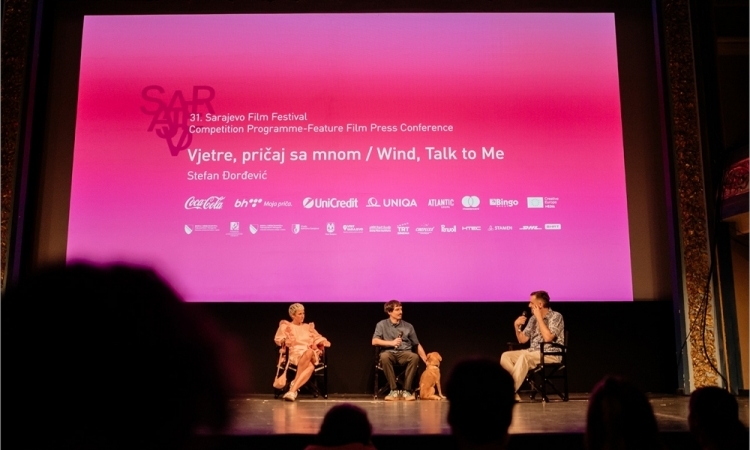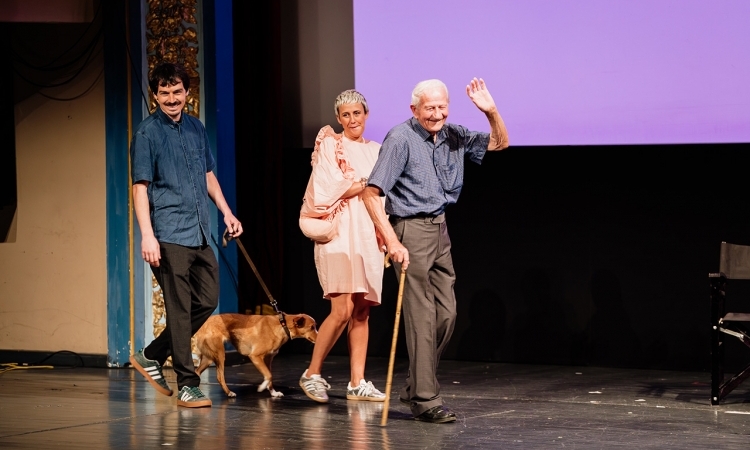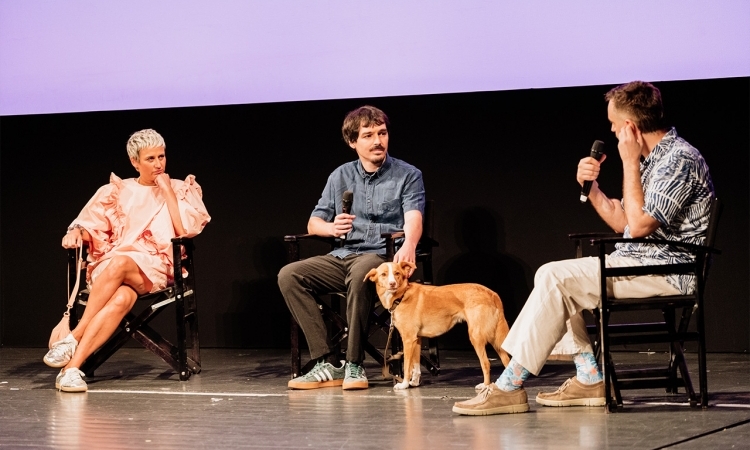News
Stefan Đorđević: Wind, Talk to Me is The Film About Death That Brings Joy
After his mother’s passing, director Stefan Đorđević decided, with the help of his entire family, to make the film Wind, Talk to Me, in which the focus will not be on mourning her loss, but on celebrating her life.
After his mother’s passing, director Stefan Đorđević decided, with the help of his entire family, to make the film Wind, Talk to Me, in which the focus will not be on mourning her loss, but on celebrating her life.
Wind, Talk to Me tells your personal and deeply emotional story of coping with the loss of your mother. At what point did you decide you were ready to tackle such a difficult subject?
Wind, Talk to Me tells your personal and deeply emotional story of coping with the loss of your mother. At what point did you decide you were ready to tackle such a difficult subject?
I knew I was ready to make a film about my mother, Neca, when I stopped seeing her passing as a heavy subject. My mother loved life more than anyone else, and what kind of student of hers would I be if I thought more about her death than her life? When I think of her, I want to feel joy, for her to make me smile, for her to never really leave. And even if tears fall, a person can only love more after them.
When did you decide that your family would also act alongside you in the film?
During the last summer of my mother’s life, we filmed scenes that left a deep impression on me. Just the act of filming opened up topics between the two of us that we had never discussed before. She confided in me about how she talks to the wind. Later, seeing the sparkle in her eyes as she spoke about the wind, I realized that this is what made Neca special and unique, and that no one could play or replace that. That thought sparked a desire for authenticity, because her relationship with our family and the environment in which Neca grew up made her truly one of a kind, just as she influenced all of us. From there came the desire of every family member to dedicate Wind to her, because, even though opening up in front of a camera was far from easy, she had done much harder things out of love for us.
How much did your brother Boško Đorđević, credited as a collaborator on the script, help in creating the film?
Boško is also a filmmaker, and he is the only member of our family familiar with the structure and form of a film. I deeply value his opinion, and without his dedication, Wind would not be what it is, a film about family. The script was composed of memories and recollections from the time after Neca’s passing, which we then reconstructed during filming. What Boško brought as a creator on set was presence, the ability to craft a unique moment in time, not in a cinematic way, but as part of life. He understood the complexity of the form best and wrote scenes for himself, just as Neca had written them for herself.
How much did working on this film help you cope with your mother’s death?
Every part of creating Wind came with its challenges, which I could never have overcome without having devoted people around me. And I don’t mean only the family in front of the camera, but also those behind it. Dragana Jovović, the film’s producer, had also lost a parent, and without her understanding and grasp of the topic’s complexity, but above all, without her support, I wouldn’t have been able to see this film through to the end. Many members of the crew had lost someone close at an early age, and each of them had their own motivation to work on a project that confronts death. Dealing with life’s traumas is extremely important, whether in a creative or a human way, and for all of us who worked on this film, these two aspects intertwined, strengthening not only our interpersonal relationships but also our connection to the world around us.
Lija, the dog in the film, is one of the main characters. Why was it important for you to introduce the motif of an injured dog into this family atmosphere?
My mother spent her last summer at Borsko Lake, in a small camper, surrounded by plants and animals. She needed to be in an environment that radiated positive energy in order to fight the illness within her. To be able to talk to the wind, she first had to hear it. In the complexity of human traits and relationships, we often don’t consider the basics—how much we depend on each other. Without care, there is no love. After my mother’s death, the sense of care seemed to vanish overnight, and an immense weight fell on my shoulders. I had long thought about adopting a dog, to save it from the unpredictability of life on the streets, but above all, I was the one who needed help. In a moment of fragility and distraction, I accidentally hit a dog with my car on the road and then tried to help it, but it ran away. Shortly after that, I adopted Lija, and ever since, Lija and I have been inseparable.
In 2010, you acted in the film Tilva Roš, which went on to win the Heart of Sarajevo for Best Film. In 2018, you were part of Sarajevo Talents, and in 2019 your short film The Last Picture of Father also received the Heart of Sarajevo. How does it feel to return to the Festival with your debut feature film?
The Sarajevo Film Festival was the first film festival I ever attended, and it is an extraordinary honor that the regional premiere of my film takes place where my cinematic journey began fifteen years ago. The Festival nurtures and supports filmmakers from the region, and I feel privileged that our film is part of this year’s edition. What makes it especially meaningful, however, is that my entire family will see the film with an audience for the first time. For them, this will be their first film festival! And who knows, perhaps it will mark the beginning of a new cinematic journey...








